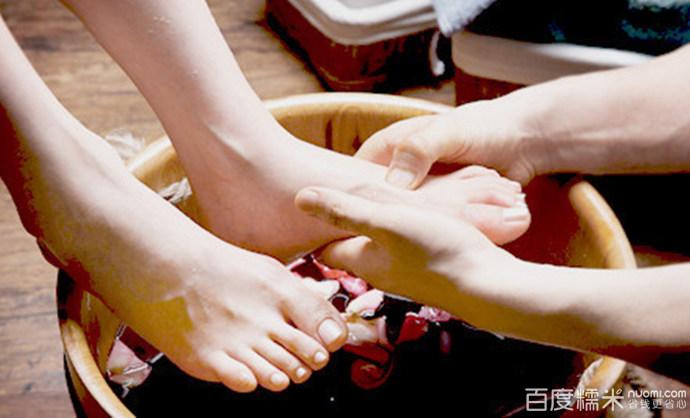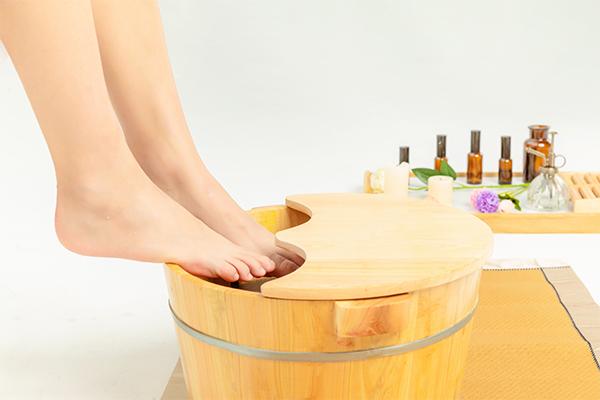Foot reflexology, an ancient therapeutic practice rooted in traditional medicine, has gained considerable popularity for its holistic benefits and ability to promote overall well-being. As more individuals seek effective ways to relieve stress and maintain health, the role of a skilled foot reflexologist becomes increasingly important. Understanding the essential skills required for this practice can not only help practitioners provide better care but also guide clients in finding qualified professionals who can support their health journey. In this article, we will explore the crucial skills a foot reflexologist must possess and how these skills contribute to effective and beneficial foot therapy.
**1. Deep Knowledge of Reflex Points**
At the heart of foot reflexology lies the knowledge of reflex points on the feet, each corresponding to different organs and systems within the body. A proficient foot reflexologist must possess an in-depth understanding of these reflex zones and their connections to bodily functions. This knowledge allows practitioners to apply pressure to specific points to stimulate healing and alleviate discomfort.
Reflexologists often study various charts and diagrams that map out these reflex points, learning how to interpret and use this information to tailor treatments to individual needs. Mastery of these reflex zones is critical, as it ensures that the pressure applied is accurate and effective, targeting the correct areas to produce the desired therapeutic effects.
**2. Mastery of Foot Reflexology Techniques**
Foot reflexology is not just about knowing where to apply pressure but also about using the right techniques to achieve optimal results. These techniques include thumb walking, finger walking, and various forms of pressure application, such as kneading and rotational movements. Each technique serves a specific purpose, from stimulating energy flow to releasing muscle tension.
A skilled reflexologist must be adept at switching between these techniques based on the client’s condition and response. For instance, thumb walking involves using the thumbs to apply steady pressure along reflex zones, while finger walking entails a similar process using the fingers. Mastery of these techniques requires practice and a keen sense of touch, enabling the practitioner to adjust pressure and movements to suit the client’s needs.
**3. Excellent Communication Skills**
Effective communication is a cornerstone of successful foot reflexology practice. A reflexologist must be able to engage with clients, understand their concerns, and provide clear explanations about the therapy process. This involves not only listening to the client's feedback but also explaining how reflexology works and what they can expect from the sessions.

Additionally, maintaining open communication helps in assessing the client’s comfort levels and adjusting techniques accordingly. Good communication fosters trust and ensures that clients feel heard and respected, which is essential for creating a positive and therapeutic experience.
**4. Strong Sense of Empathy and Sensitivity**
Empathy and sensitivity are crucial traits for a foot reflexologist. Understanding the client's physical and emotional state allows the practitioner to provide care that is both compassionate and effective. Reflexology can sometimes elicit strong emotional responses, and a sensitive practitioner can offer support and reassurance during these moments.
Furthermore, being attuned to the client’s body language and verbal feedback helps the reflexologist adjust their approach, ensuring that the therapy is tailored to the individual’s needs. This empathetic approach not only enhances the therapeutic experience but also builds a strong client-practitioner relationship based on trust and understanding.
**5. Knowledge of Anatomy and Physiology**
A solid understanding of anatomy and physiology is essential for any foot reflexologist. This knowledge helps practitioners understand how reflex points correspond to different body systems and how applying pressure to these points can influence overall health. Familiarity with the body's structure and functions allows reflexologists to create more effective treatment plans and to anticipate how different techniques might impact the client.

Continuous education and staying updated with the latest advancements in anatomy and reflexology techniques are important for maintaining proficiency and delivering high-quality care. This commitment to learning ensures that reflexologists can provide the most relevant and effective treatments.
**6. Professionalism and Hygiene Practices**
Professionalism and hygiene are non-negotiable aspects of a successful reflexology practice. Maintaining a clean and sanitary environment is crucial for client safety and comfort. Reflexologists must adhere to strict hygiene practices, including sanitizing hands, tools, and the treatment area before and after each session.
Additionally, professionalism extends to how practitioners conduct themselves in their interactions with clients. This includes respecting privacy, maintaining appropriate boundaries, and providing a respectful and non-judgmental atmosphere. Professionalism not only enhances the client’s experience but also upholds the integrity of the reflexology practice.
**7. Ability to Create a Relaxing Atmosphere**
The effectiveness of reflexology is significantly influenced by the environment in which it is performed. A skilled reflexologist knows how to create a calming and relaxing atmosphere that enhances the therapeutic effects of the treatment. This includes setting up a comfortable treatment space, using soothing music, and ensuring a pleasant ambiance.

A relaxing environment helps clients unwind and fully benefit from the therapy. By paying attention to these environmental factors, reflexologists can improve the overall effectiveness of their treatments and ensure that clients leave feeling rejuvenated and satisfied.
**8. Ongoing Professional Development**
The field of reflexology, like many other therapeutic practices, is continually evolving. To stay at the forefront of the industry, reflexologists must engage in ongoing professional development. This includes attending workshops, participating in training programs, and staying informed about the latest research and techniques.
Ongoing professional development ensures that reflexologists can offer the most current and effective treatments, enhancing their skills and expanding their knowledge base. This commitment to continuous improvement benefits both the practitioner and their clients, contributing to the overall success of the practice.
In conclusion, the skills required for effective foot reflexology extend far beyond the application of pressure to specific points on the feet. Mastery of reflexology techniques, a deep understanding of reflex points, excellent communication, empathy, anatomical knowledge, professionalism, the ability to create a relaxing atmosphere, and ongoing professional development are all essential components of a successful reflexologist's skill set. By cultivating these skills, practitioners can provide high-quality care that supports their clients' health and well-being.
转载请注明:成都会所桑拿-四川成都休闲桑拿推荐论坛! » 足疗保健 » The Essential Skills of a Foot Reflexologist: How Mastering Foot Therapy Techniques Can Enhance Your Well-being
版权声明
本文仅代表作者观点,不代表成都休闲网立场。
本文系作者授权发表,未经许可,不得转载。





























